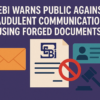It has been an incredible effort for a tiny European country:

Lithuania, one of the 3 Baltic states in Eastern Europe, is today one of the leading fintech hubs in the world. A tiny country with a population of just 2.8 million, it is the most visible fintech destinations in Europe – second in the region and 4th in the world. Some recent statistics indicate that the number of fintechs in the country increased by 24% in a year and the number of jobs in the sector went up by over 30%.
There are some 270 fintechs that employ 7000 people.
It is essentially the sustained efforts of the Lithuanian government to create a congenial environment for fintechs and consider them as the most important that brought in this change in a matter of short time. It is also the result of a very healthy collaboration between the government, the country’s banks and several private firms. The role played by the Bank of Lithuania, the regulator, has been quite crucial. The country has also adopted legislations relating to the creation and development of a fintech culture that is tuned to the market needs, which has fuelled the growth of the sector. There is a very close collaboration between the central bank, the country’s Agency for Science and Innovation and BCCS Cluster, a consortium supporting IT businesses and communities and creating meaningful relationships between the stakeholders.
5-YEAR FINTECH STRATEGY
Lithuania has recently put in place a new 2023-2028 Fintech Strategy, which is aimed at further consolidating its position as the fintech hub in Europe. The strategy envisages to:
- Support the qualitative development of the fintech sector in the country
- Attract innovative fintech solutions
- Ensure that Lithuania is the center of excellence for fintech
- Ensure that the country is a safe and reliable jurisdiction
- Ensure that it is universally recognized as a European fintech hub
The strategy also lays down several performance indicators to help ensure that the country is on track to achieve its aims in 2028 – like facilitating a 30% annual fintech revenue growth rate; serving at least 35 million fintech clients; as well as reducing the number of fintech companies facing talent shortages to 30% (down from 62%).
GOVERNMENT EFFORT
The Government, on its part, has taken up several initiatives like simplifying migration procedures for incoming foreign professionals and actively encouraging cooperation between the various supervisory authorities, as well as between supervisory authorities and supervised entities.
The Government is also ensuring that there is a unified ecosystem that is marked by cooperation and mutual communication within the sector. For example, the Fintech Hub LT Association, Invest in Lithuania, a public institution, Bank of Lithuania, Ministry of Finance, major fintech companies and all other related entities work hand in hand to address the issues faced by the financial sector.
For the Government, fintech is a strategic direction. It has adopted a flat-rate corporate tax rate – 15% – which is one of the lowest in Europe. There is a highly developed digital infrastructure, which is still improving in its performance and availability of professionals and digital skills. There is also the Law on Employment, which facilitates easier employment of foreign talent.
The government supports startups through investment funds, grants and acceleration programs. There are systems like crowdfunding and venture capital funding for fintechs.
SOPS FOR FINTECHS
Some of the highlights of the regime that governs the financial services sector that encourages the fintech sector in the country are:
- A fintech can apply online and obtain an electronic banking licence in about 3 months, which compares with a minimum of 12 months in other EU countries.
- More than 50% of the fintechs in Lithuania are licensed as electronic money institutions, payment institutions, or specialized banks, which is the highest in the EU.
- The regulations that govern the financial services sector are very transparent.
- Lithuania is ranked eighth lowest in financial risk for money laundering in the world.
- Lithuania has a Center of Excellence dedicated to refining AML legislation.
Invest Lithuania in one of its recent Business Service Report, has said: “Only a short decade ago, Vilnius was relatively unknown amongst other similarly sized European cities. But today, its standing, particularly as a tech powerhouse, far outstrips its size. Rising challenger banks like Revolut and dynamic GameDev companies like Unity have their headquarters here, while the city’s entrepreneurial startup scene has birthed unicorns like the second-hand clothing portal Vinted and the VPN titan Nord Security.”

TOP 10
The top 10 fintech enterprises in Lithuania are:
DappRadar, a distribution platform for discovering and analyzing blockchain-based decentralized applications
Interactio, a mobile app-based live translation solution
Ondato, a tech enterprise that takes care of KYC and AML-related processes
Paysera, an enterprise that offers banking channels and issuer processing solutions
PeerBerry, an alternative investment platform focused on secondary market investments
Bankera, aiming to become a fully functional banking service provider running on Blockchain.
W1TTY, a mobile-based platform providing digital payment solutions
WhiteBIT, a cryptocurrency exchange and trading platform
HeavyFinance, an online lending P2P marketplace for farm loans
kevin, a payment infrastructure for online and physical sales.
Read more:
Transforming Purpose: From Numbers to Caring









